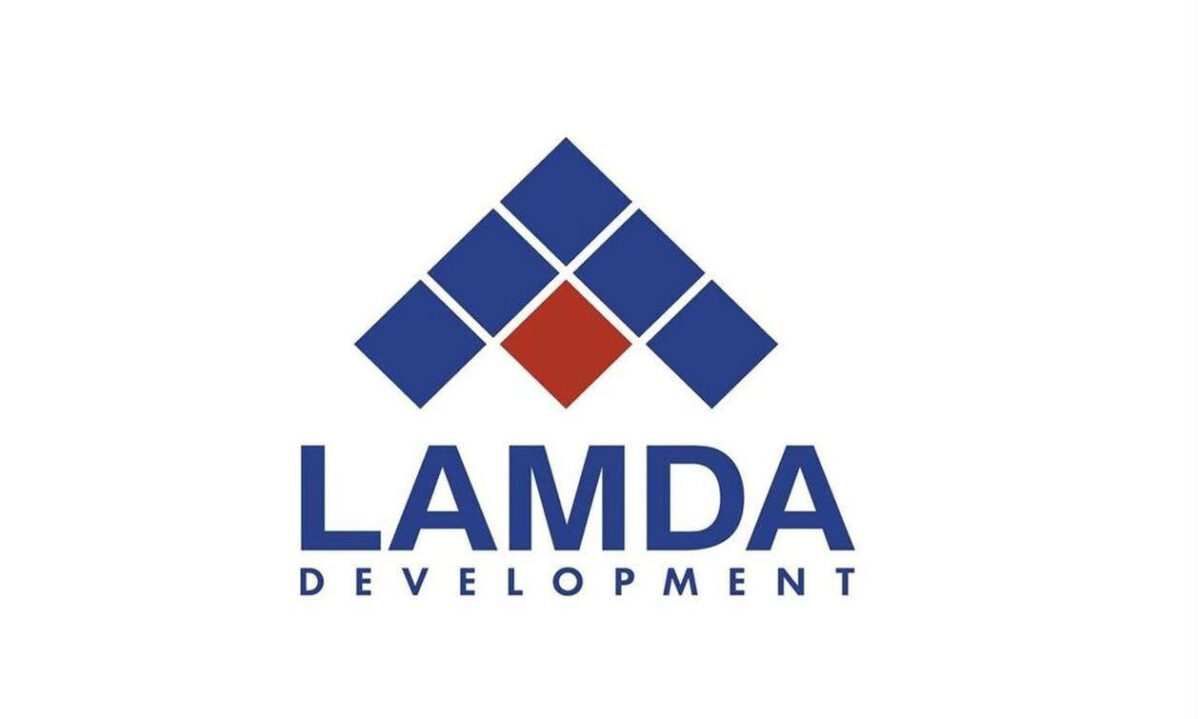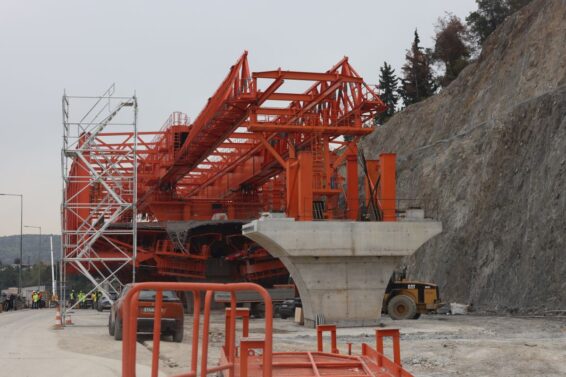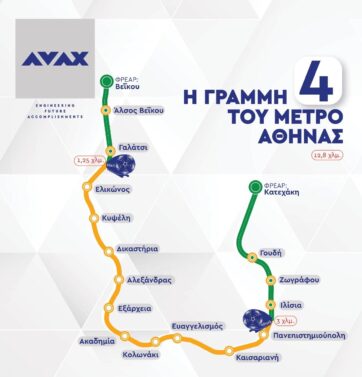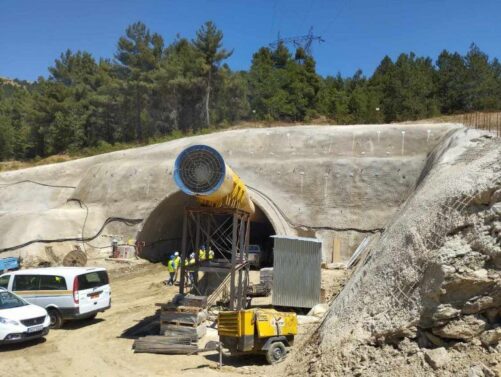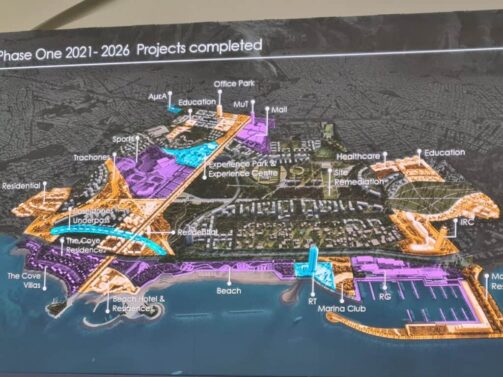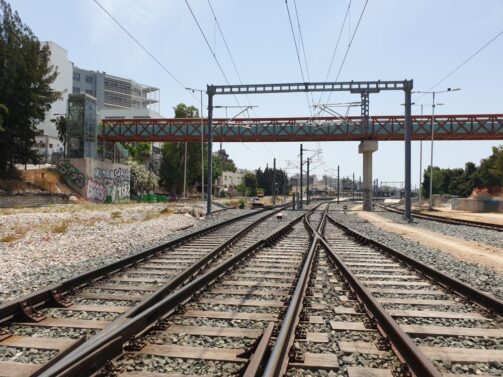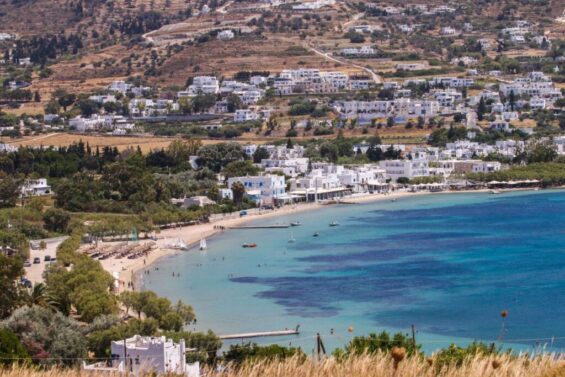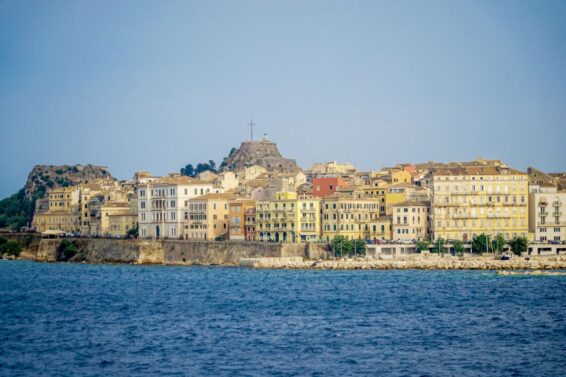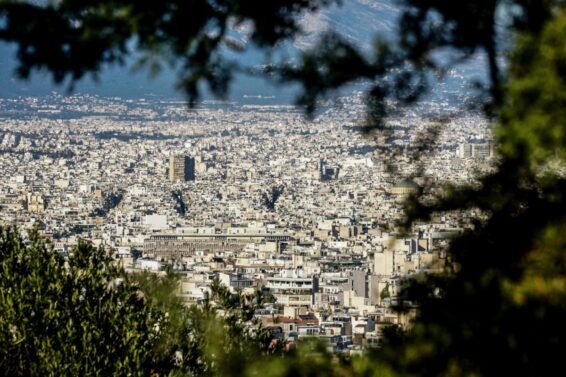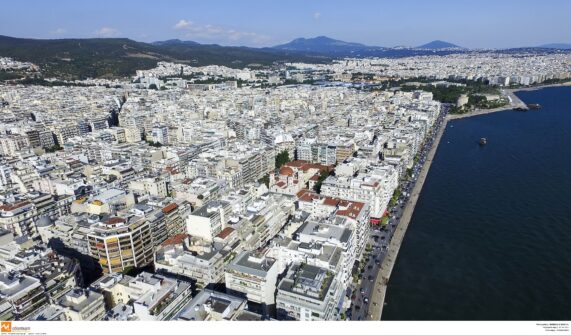Attiko Metro seriously examines the scenario of the participation of the private sector as the optimal way for the materialization of Athens Metro Line 4 extensions as well as the development of new metro lines in the city (i.e. to be mainly promoted as PPP projects). In a speech made by Attiko Metro’s CEO, Mr. Theodore Papadopoulos at Friday’s Economist Conference in Athens. According to estimates, the required cost for 120 km and 105 new stations that will form an 8-line network could soar at 13bn euros. As Mr. Papadopoulos also revealed, the company’s official study for the network’s development is currently being updated, in order for the needs to be specified.
Regarding the future, Attiko Metro CEO noted that available funds from NSRF are now relatively small for the expansion needs of the network, thus referring to the participation of private funds. Besides, as ypodomes.com had revealed a year ago, a relevant study by a US company is underway for this very purpose.
Indeed, in a scenario presented at Economist Conference, the budget for the extensions of Line 4 alone, would require approximately 2.86bn euros. As a PPP, the capital leverage would be 1.62bn from public funds and 1.24bn from private. This could be also translated as 62% of public participation, 28% private loans and 10% private equity making possible the construction of 26 km of new underground line with 20 stations, that will complete Line 4 with its extensions to Lykovrysi, Ano Ilioupoli and Petroupoli.
With this model, operation would be undertaken for a period of 35 years by a private scheme, average revenue per year could be 71.4m euros per year, and a total operating income of 2.5bn euros. Average costs per year were estimated at 17.8bn euros with an average ticket price at 0.67 euros, average EBITDA at 53.5m euros and an annual ridership of 95m passengers.
This interesting scenario shows a lot. On the one hand, the inability of both the State and the EU to finance these large-scale projects, making the participation of the private sector necessary for the implementation of strategic transport projects in Athens -and quite possibly in Thessaloniki later on- breaking the monopoly of the State to an area that had been traditionally public, as it has already happened with TRAINOSE and the Suburban Railway.
Nikos Karagiannis-ypodomes.com
ΜΗΝ ΞΕΧΑΣΕΤΕ
- Ακολουθήστε το ypodomes.com στο Google News και μάθετε πρώτοι όλες τις ειδήσεις για τις υποδομές στην Ελλάδα
- Αν είστε επαγγελματίας του κλάδου, ακολουθήστε μας στο LinkedIn
- Εγγραφείτε στο Ypodomes Web TV



